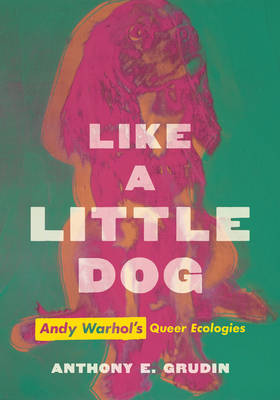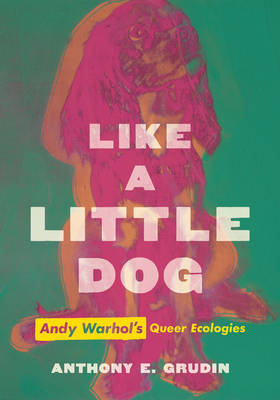
- Retrait gratuit dans votre magasin Club
- 7.000.000 titres dans notre catalogue
- Payer en toute sécurité
- Toujours un magasin près de chez vous
- Retrait gratuit dans votre magasin Club
- 7.000.0000 titres dans notre catalogue
- Payer en toute sécurité
- Toujours un magasin près de chez vous
62,45 €
+ 124 points
Description
A bold, compelling, and original study of nonhuman life in Warhol. Like a Little Dog examines a dimension of Andy Warhol that has never received critical attention: his lifelong personal and artistic interest in nonhuman life. With this book, Anthony E. Grudin offers an engaging new overview of the iconic artist through the lens of animal and plant studies, showing that Warhol and his collaborators wondered over the same questions that absorb these fields: What qualities do humans share with other life forms? How might the vulnerability of life and the unpredictability of desire link them together? Why has the human/animal/plant hierarchy been so rigidly, violently enforced? Nonhuman life impassioned every area of Warhol's practice, beginning with his juvenilia and an unusually close creative collaboration with his mother, Julia Warhola. The pair codeveloped a transgressive animality that permeated Warhol's prolific career, from his commercial illustration and erotica to his writing and, of course, his painting, installation, photography, and film. Grudin shows that Warhol disputed the traditional claim that culture and creativity distinguish the human from the merely animal and vegetal, instead exploring the possibility of art as an earthy and organic force, imbued with appetite and desire at every node. Ultimately, by arguing that nonhuman life is central to Warhol's work in ways that mirror and anticipate influential texts by Toni Morrison and Ocean Vuong, Like a Little Dog opens an entirely unexplored field in Warhol scholarship.
Spécifications
Parties prenantes
- Auteur(s) :
- Editeur:
Contenu
- Nombre de pages :
- 232
- Langue:
- Anglais
Caractéristiques
- EAN:
- 9780520383579
- Date de parution :
- 25-10-22
- Format:
- Livre relié
- Format numérique:
- Genaaid
- Dimensions :
- 183 mm x 259 mm
- Poids :
- 762 g

Les avis
Nous publions uniquement les avis qui respectent les conditions requises. Consultez nos conditions pour les avis.






